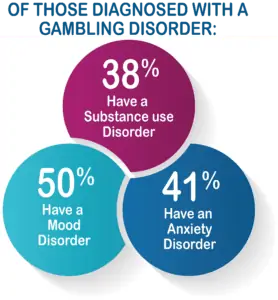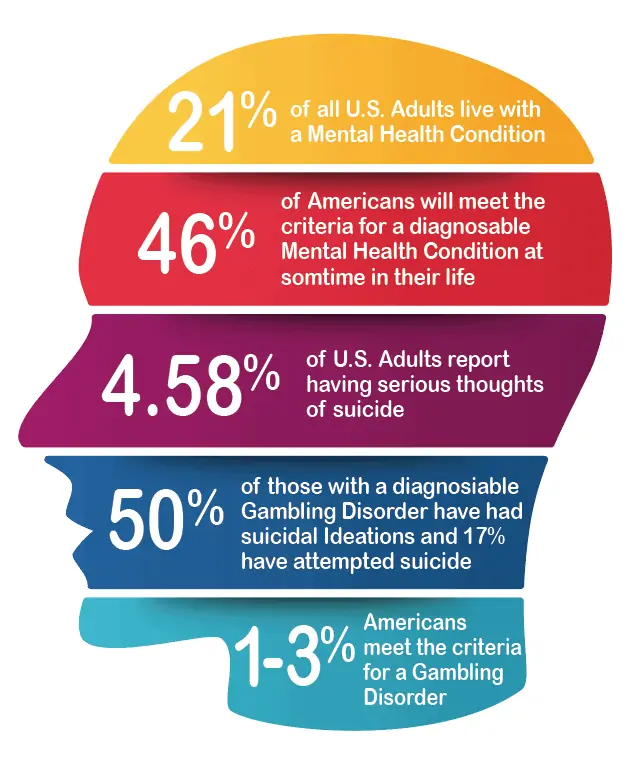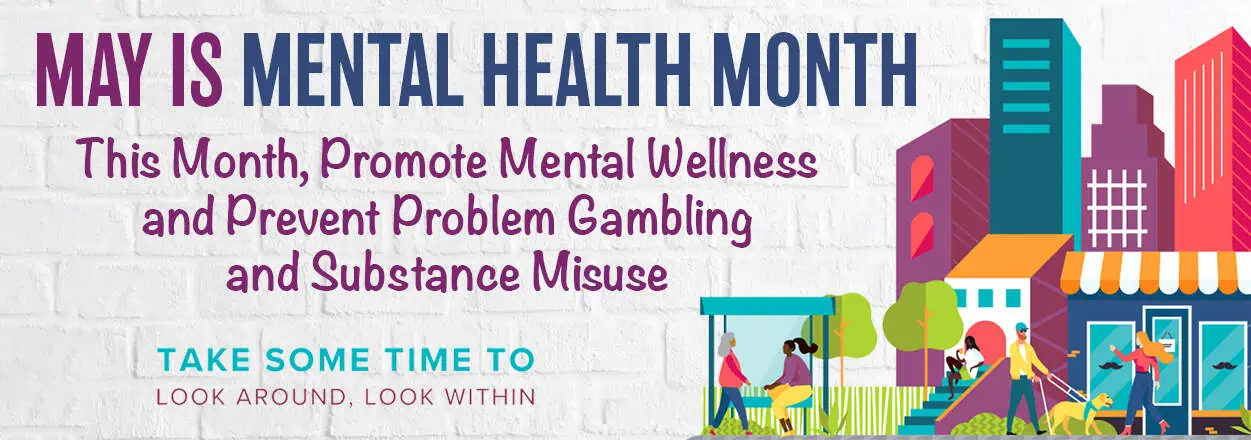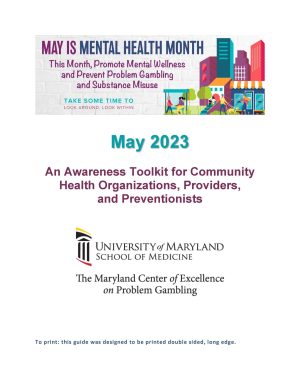This May, in collaboration with the Maryland Association of Prevention Professionals & Advocates (MAPPA), the Maryland Center of Excellence on Problem Gambling (the Center) invites you to join us in promoting Mental Health Month. With mental health entering more and more of our daily conversations, it’s critical that everyone has a solid foundation of knowledge about mental health. That’s why for Mental Health Month this year we are reminding you to take some time to look around, look within.

An Awareness Toolkit for Community Health Organizations, Providers & Preventionists
- Reference tools for Mental Health and Prevention
- Social Media Ideas (Hash Tags and Posts)
- A resource listing
Mental Health Month
This May, we invite you to join us in promoting AWARENESS of mental health; developing PREVENTION messaging to mitigate addictive behavior; and taking ACTION to foster the health and well-being for Maryland residents.
While everyone faces challenges in life that can impact their mental health, 1 in 5 people will experience a mental illness during their lifetime. There’s often no one single cause for a mental health condition. Instead, there are many possible risk factors that can influence how likely a person is to experience a mental health condition or how serious the symptoms may be.
Mental health disorders, substance use, and gambling disorders have similar risk and protective factors. With mental health entering the mainstream, it’s essential that we get the basics right, like maintaining good mental health or recognizing warning signs.
Common Signs of
Mental Health Concerns
- ISOLATION
You used to be really outgoing and positive, but lately, you want to spend most of your time home alone. - LOSING INTEREST
You aren’t as interested in things you used to like – food, music, hobbies, friends, work/school. - TROUBLE FOCUSING
You can’t concentrate enough to follow conversations with friends. - SHORT TEMPER
You’re easily irritated and keep lashing out at people you care about.
WHAT TO DO WHEN YOU NEED HELP
When living with a mental health condition or facing a mental health concern, it’s common to feel like no one understands what you’re going through. But many people overcome the mental health challenges they face. You aren’t alone – help is out there, and recovery is possible.
- Talk to someone you trust
- Talk to a professional
- Other types of treatment include community care and culturally based practices.

Crisis Hotlines in Maryland
- National Suicide & Crisis Lifeline (for emergency mental health services): Call or Text 988
- Crisis Text Line: text “HOME” to 741741 to talk with a trained Crisis Counselor for free, anonymous, 24/7 support or visit www.crisistextline.org
- Go to a safe place and dial 911 to ask for immediate assistance if the situation is life-threatening or if serious property damage is occurring.
Prevention Tips for Mental Wellness
There’s no sure way to prevent mental illness. However, if you have a mental illness, taking steps to control stress, to increase your resilience and to boost low self-esteem may help keep your symptoms under control. Follow these steps:
- Pay attention to warning signs. Work with your doctor or therapist to learn what might trigger your symptoms. Make a plan so that you know what to do if symptoms return. Contact your doctor or therapist if you notice any changes in symptoms or how you feel. Consider involving family members or friends to watch for warning signs.
- Get routine medical care. Don’t neglect checkups or skip visits to your primary care provider, especially if you aren’t feeling well. You may have a new health problem that needs to be treated, or you may be experiencing side effects of medication.
- Get help when you need it. Mental health conditions can be harder to treat if you wait until symptoms get bad. Long-term maintenance treatment also may help prevent a relapse of symptoms.
- Take good care of yourself. Sufficient sleep, healthy eating and regular physical activity are important. Try to maintain a regular schedule. Talk to your primary care provider if you have trouble sleeping or if you have questions about diet and physical activity.







